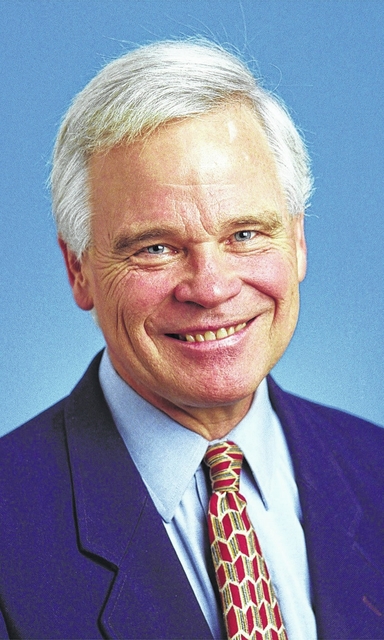Did North Carolina barbecue help Donald Trump win the presidency?
North Carolina’s barbecue guru, John Shelton Reed, has a theory.
More about that in a minute, but first let’s celebrate having two books from Reed about barbecue ready for your holiday giving to friends who love to talk about and eat our state’s favorite pork product.
Reed’s new book, titled simply “Barbecue,” is a short, but comprehensive, cookbook that sets out in simple steps how to prepare a variety of meat dishes cooked slowly over wood coals.
Soon after publishing “Barbecue,” UNC Press reissued in paperback “Holy Smoke: The Big Book of North Carolina Barbecue” written by Reed, his wife Dale Volberg Reed, and William McKinney.
That book came out in 2008 and gained recognition as the reliable source of information about the history (where and how North Carolina barbecue came about), cooking (how the pig or its portions are prepared, along with directions for the slaw, hush puppies, corn bread, Brunswick stew, and baked beans that go along with the pig), and the people (biographies of the legendary individuals and families who built and maintain the state’s barbecue traditions).
All this information, packed into 300 pages, provides enough facts to win or settle every conceivable argument about North Carolina barbecue.
If you are thinking “Holy Smoke” would make a good present for your brother-in-law, your boss, or your best friend, do not hesitate. Buy it now and enjoy reading it for a few days before wrapping it up to give away.
“Holy Smoke” comes with a new preface that covers developments in the North Carolina barbecue world since the book was first published. The authors write about several growing concerns.
At the top of their list is that fewer restaurants are cooking over wood coals. They write, “It’s a sad fact that a great majority of North Carolina barbecue places, including some of the oldest and best known, no longer use wood or charcoal at all, and it’s a sadder fact that we’ve let them get away with it. Outsiders are starting to notice, and our state’s longstanding reputation for barbecue excellence has begun to suffer.”
Another worry is the growth in places that “hew to the ‘International House of Barbecue’ model: pick your meat, pick your sauce; mix and match; the customer is always right. The result is a sort of barbecue Esperanto—barbecue from nowhere.”
The authors write that they have come around to welcoming the more expensive, higher-end barbecue restaurants even though they are costly. But “something will be lost. In the past barbecue has brought all sorts of people together. Lawyers and construction workers, cops and college students, cowboys and hippies, preachers and sinners, black and white (since desegregation) — all could savor a $3.50 barbecue sandwich at Wilber’s or Stamey’s. We hope some old-timey places like that will still be around for our grandchildren and for North Carolinians who can’t or won’t spring for a $12.00 version.”
John Reed likes to tie barbecue to politics, and “Holy Smoke” is full of stories about politicians who lost elections because of some barbecue-related gaffe they made on the campaign trail.
The latest, he told me the other day, was Hillary Clinton’s choice of a barbecue stop in Charlotte at the end of the presidential campaign. She and President Obama ate at the Midwood Smokehouse. It has a varied and upscale menu, but it is not a traditional barbecue eatery. Meanwhile, Donald Trump was buying one of those $3.50 barbecue sandwiches at Stamey’s in Greensboro.
“Maybe Clinton’s choice sold in Charlotte,” Reed said, “but the rest of the state was thinking Trump was eating at a real North Carolina barbecue stop, a big reason he won and she lost.”
D.G. Martin hosts “North Carolina Bookwatch,” which airs Sundays at noon and Thursdays at 5 p.m. on UNC-TV.

